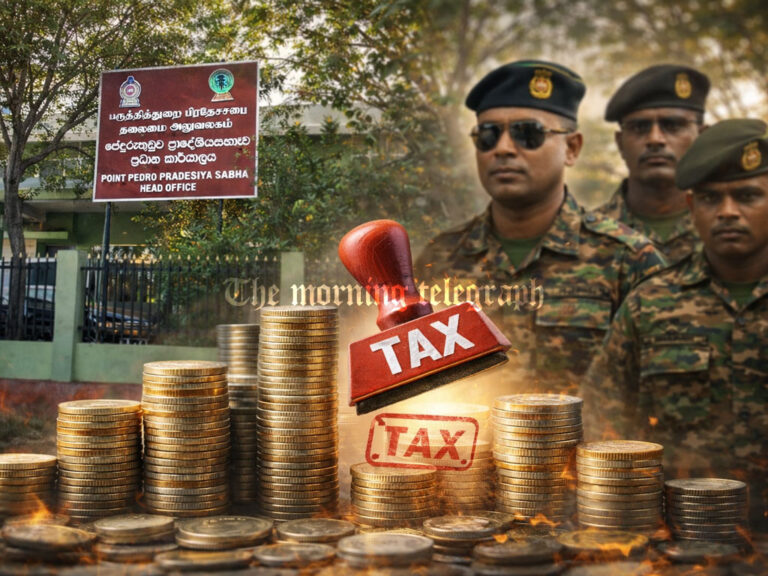
National People’s Power Unveils Detailed 2024 Presidential Election Manifesto
The National People’s Power (NPP) has unveiled its comprehensive manifesto for the upcoming 2024 presidential election, titled “A Rich Country, A Beautiful Life.” This extensive document outlines a transformative agenda designed to address key challenges facing Sri Lanka. Spanning 230 pages, the manifesto encompasses detailed plans across various sectors, including governance, economy, social welfare, and environmental sustainability.
Governance and Constitutional Reforms
- Drafting a New Constitution: The NPP proposes drafting a new constitution to be adopted through a national referendum. This new constitution aims to align Sri Lanka’s legal framework with international human rights standards, ensuring enhanced protections for children, women, and individuals with disabilities.
- Abolishing the Executive Presidency: The manifesto calls for the abolition of the executive presidential system, advocating for a parliamentary system where the president’s role will be largely ceremonial.
- Ministerial and MP Reforms: The NPP intends to limit the number of ministerial positions to 25 and abolish state minister posts. MPs will no longer receive duty-free vehicle permits, special allowances, or pensions after five years. They will also be restricted to one official vehicle during their term.
Economic and Taxation Policies
- Economic Shift: The manifesto emphasizes transitioning Sri Lanka towards a manufacturing-based economy with a strong emphasis on science and technology. It aims to boost economic growth through increased investment in these sectors.
- Debt Management and IMF Negotiations: The NPP plans to renegotiate with the IMF to secure more favorable terms for the economically disadvantaged. A comprehensive debt sustainability plan will be introduced, including a full audit of foreign loans and improved public financial management.
- Tax Reforms: The manifesto proposes increasing the annual tax exemption limit from Rs. 1.2 million to Rs. 2.4 million, revising tax brackets, and expanding the tax base. It also calls for the introduction of Point of Sales (POS) machines and digital invoicing to enhance VAT collection. Essential goods and services produced locally will benefit from a reduced VAT rate of 0%.
- Digital Identification: A digital ID system will be introduced for every citizen to facilitate access to government services and interactions with state institutions.
Social Welfare and Pension Reforms
- Universal Pension Scheme: The NPP plans to establish a universal pension scheme managed by the Department of Pensions and the Central Bank. This scheme will also function as an emergency insurance fund.
- Support for Senior Citizens: Monthly stipends of Rs. 5,000 will be provided to senior citizens in need. New elder care centers will be set up at the divisional secretariat level, and financial incentives will be offered to private care centers.
- Assistance for Disabled Individuals: The manifesto includes provisions for financial assistance of Rs. 10,000 per month for disabled individuals from low-income families. Measures will also be introduced to support their education, training, and employment.
Education and Health Initiatives
- Investment in Education: The NPP proposes increasing public investment in education to 6% of GDP. This includes enhancing early childhood education and improving access to language programs.
- Healthcare Spending: Government expenditure on health will be raised to at least 3% of GDP, with a focus on disease prevention and promoting a healthy population.
- Urban Housing Solutions: To address urban housing challenges, the manifesto suggests building apartment complexes and implementing efficient land use management strategies.
Judicial and Anti-Corruption Measures
- Judicial Reforms: The manifesto aims to create a more efficient, transparent, and affordable judicial system. This includes updating laws, modernizing court processes with technology, and establishing user-friendly courtrooms.
- Anti-Corruption Initiatives: A State Asset Recovery Agency will be established to focus on recovering stolen assets, with support from international partners. A specialized three-judge High Court bench will be appointed to handle corruption cases, and Anti-Corruption Commission offices will be set up in every district.
Environmental and Media Policies
- Environmental Protection: The manifesto promotes sustainable environmental practices, focusing on balancing economic development with ecological preservation and mitigating climate change impacts.
- Media Reforms: Efforts will be made to optimize mass media as a tool for social and cultural advancement. This includes providing training and low-interest loans to journalists and recognizing excellence in journalism.
Labor and Employment
- Wage and Employment Policies: The manifesto proposes implementing a national wage structure to address wage disparities and creating a social security fund for workers. It also aims to provide job opportunities for unemployed graduates and boost employment in key sectors such as education, IT, and tourism.
- Gender Equality: Measures will be introduced to address gender inequality, including support for women-headed households and initiatives to close the gender pay gap.
Digital Governance and Financial Policies
- Digital Transformation: The manifesto highlights the importance of digital governance, including launching global IT marketing campaigns and digitizing key government institutions.
- Financial Stability: A new relief bank and a National Development Bank will be established to support small and medium enterprises. Additionally, efforts will be made to stabilize policy interest rates and strengthen financial intelligence and regulatory frameworks.
The NPP’s manifesto presents a comprehensive plan aimed at addressing Sri Lanka’s governance, economic, and social challenges. With a focus on transparency, efficiency, and inclusivity, the manifesto seeks to pave the way for a prosperous and equitable future for the nation.




